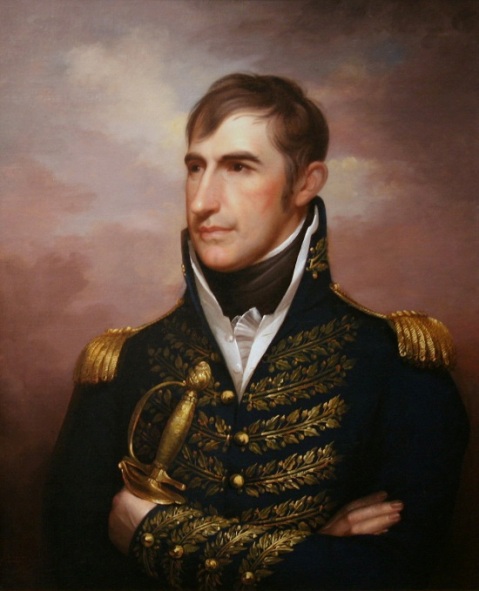

 |

|
|
Harrison Moves to Buffalo Gen. Harrison arrived at Buffalo on October 24. He went to Ft. George to prepare troops for active operations against the British at Burlington Heights, at the west end of Lake Ontario. While in the midst of these preparations, a letter came requiring General Harrison to send McArthur's brigade to Sackett's Harbor, as Montreal, not Kingston, would be the point of attack on the enemy by Wilkinson's army. There were valuable stores at Sackett's Harbor, and it was thought to be more important to save these than to assail the enemy farther west. The Secretary of War gave Gen. Harrison permission to visit his family near Cincinnati. During this time there was a lot of talk by the public of elevating Gen. Harrison, a successful leader, to the position of commander-in-chief of the American army, Dearborn and Wilkinson having been complete failures. However, the feelings of John Armstrong, the Secretary of War, appear to have been suddenly and greatly changed. Gen. Harrison became convinced that the secretary opposed him, and was determined to deprive him of any command. On May 11, 1814, Harrison, in a letter to the Secretary of War, and another to the President of the United States, offered to resign his commission. Governor Shelby urged Madison not to accept the resignation, and saying, "Having served in a campaign with General Harrison, by which I have been enabled to form some opinion of his military talents and capacity to command, I feel no hesitation to declare to you that I believe him to be one of the first military characters I ever knew, and, in addition to this, he is capable of making greater personal exertions than any officer with whom I have ever served." Unfortunately for the country, the President was absent from Washington, at his home in Virginia, when the letters of Harrison and Shelby reached the capital. The Secretary of War, without consulting the President, accepted the general's resignation. Harrison left the army, and, during the ensuing summer he was appointed, in conjunction with Governors Shelby and Cass, to treat with the Indians of the Northwest concerning all things in dispute between the tribes and the United States.
|